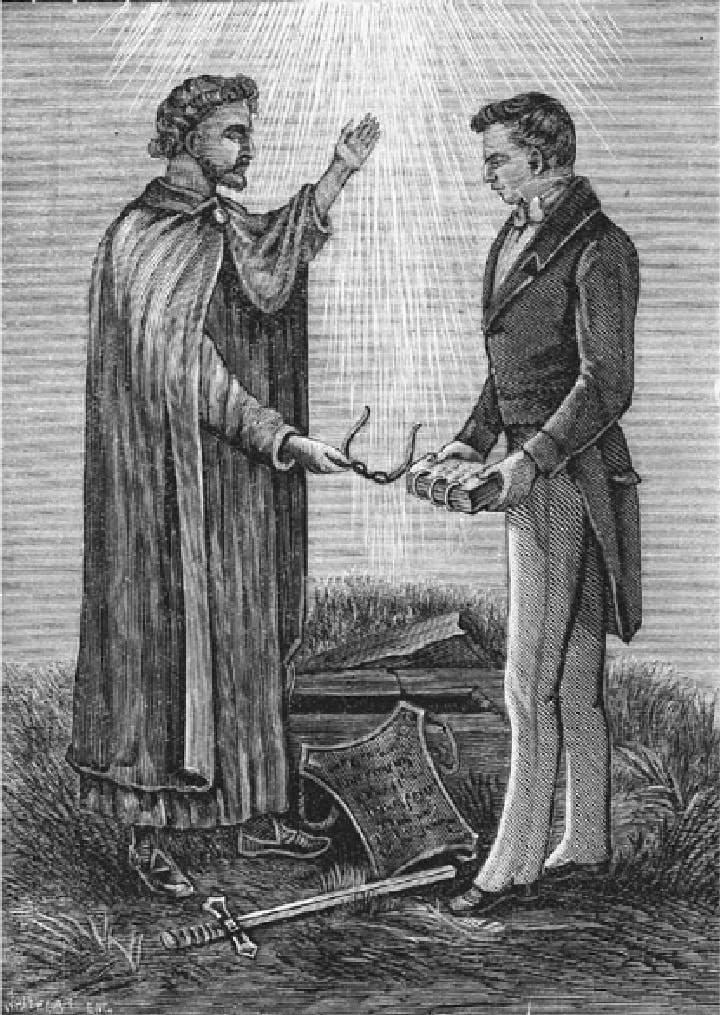Fall 2012
Mormonism’s surprising radical communitarian origins
– The Wilson Quarterly
Joseph Smith called for Zion to be a classless commune in which Mormons would “hold all things in common."
Joseph Smith (1805–44), who founded the Church of Jesus Christ of Latter-day Saints in 1830, had a radical vision. Zion, the earthly community where “the Saints” would await the imminent second coming of Jesus Christ, was to be a classless commune in which Mormons would “hold all things in common,” writes Patrick Q. Mason, a professor of North American religion at Claremont Graduate University.
What happened to these early ideals? “In the late 19th and early 20th century,” Mason writes, “the church dropped many of its overtly communitarian practices and shifted toward making personal morality the mark of saintliness.” This change roughly followed the path of conservative Protestant churches at the time as they parted ways with the reform agenda of the liberal Social Gospel movement.
Mormons today tend to “downplay the radically countercultural aspects” of Zion, such as the elimination of poverty, inequality, and war. The Mormon church instead focuses on individual morality and the importance of family.
From the beginning, Mormonism had emphasized the fundamental importance of individual rectitude. Smith rejected the concept of original sin, emphasizing human free will. “We believe that man will be punished for his own sins,” one Mormon tenet asserts, “and not for Adam’s transgression.” The theological emphasis on individual responsibility has very concrete implications for worldly affairs. Mormons also believe in a pre-Creation “war in heaven” in which Satan “sought to enslave the children of God and Christ guaranteed their freedom as moral agents,” Mason relates. Many Mormons view contemporary ideological and political clashes as a continuation of this battle. Anything that might infringe on individual moral freedom must be resisted.
At the same time, the church is widely recognized for the generous welfare programs that serve its 14 million members worldwide. It has also rapidly expanded its broader humanitarian relief efforts, which brought aid to disaster-stricken people in 58 countries in 2010.
Family is the other top concern of the Mormon church. A 1995 proclamation stipulated that “marriage between a man and a woman is ordained of God and that the family is central to the Creator’s plan for the eternal destiny of His children.” This has translated into widespread Mormon opposition to same-sex marriage, and, according to Mason, an “almost universally conservative” approach to sexual ethics. But the concern with family can also yield centrist positions, as on immigration. In 2011, the church backed the moderate Utah Compact, which opposed any immigration measures that would pry apart families, such as deportation.
What of Republican presidential nominee Mitt Romney’s Mormonism? In the 1980s and early ’90s, during his time as a Boston bishop and stake president, both leading ecclesiastical positions filled by lay volunteers, he was known as “a compassionate leader who … often donated his own money to families in need,” Mason recounts. But all this took place within the confines of the congregation. Mason concludes that “for better or worse the radical, socially transformative vision of Joseph Smith and Brigham Young has been thoroughly domesticated.”
THE SOURCE: “Visions of Zion” by Patrick Q. Mason, in Christian Century, Aug. 22, 2012.
Photo courtesy of Wikimedia Commons
